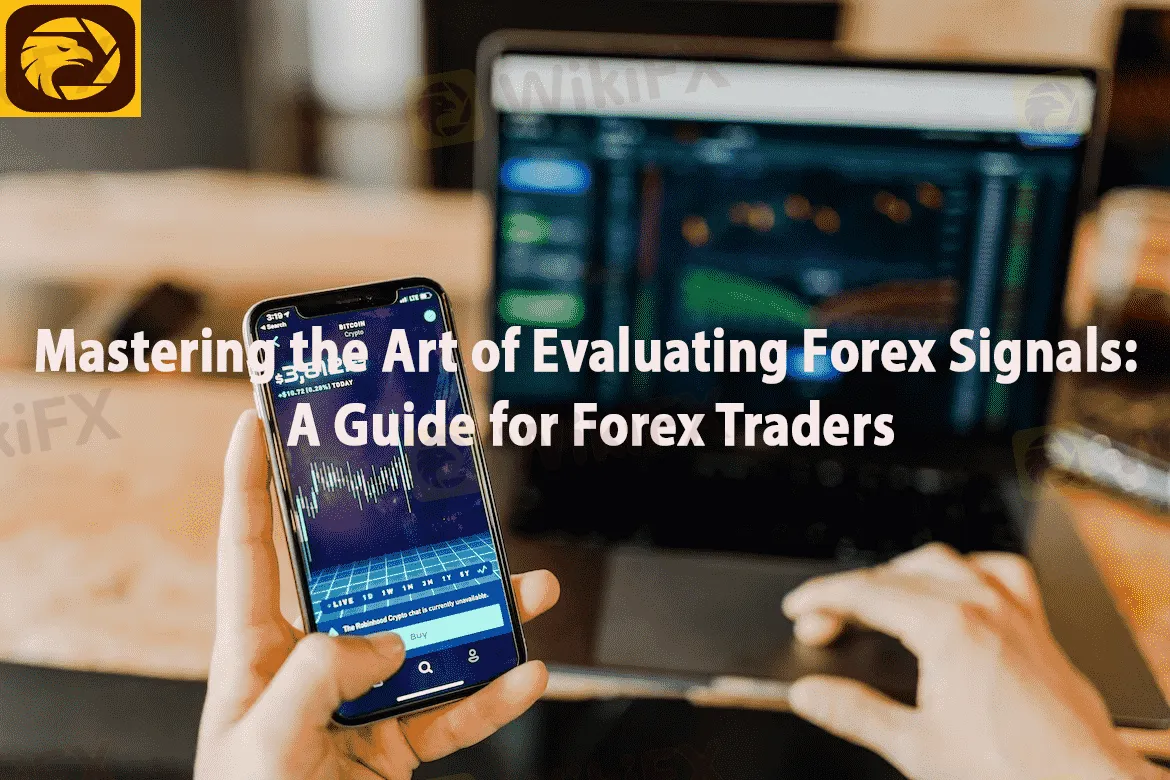简体中文
繁體中文
English
Pусский
日本語
ภาษาไทย
Tiếng Việt
Bahasa Indonesia
Español
हिन्दी
Filippiiniläinen
Français
Deutsch
Português
Türkçe
한국어
العربية
Mastering the Art of Evaluating Forex Signals: A Guide for Forex Traders
Abstract:Forex trading is a dynamic and complex market that requires traders to make informed decisions based on various factors.

One such factor is forex signals, which are indicators or notifications that suggest potential trading opportunities. However, blindly following signals can be risky, as not all signals are accurate or suitable for every trader. To navigate the forex market successfully, traders must develop the skill of evaluating forex signals effectively. In this article, we will discuss essential considerations for evaluating forex signals and making informed trading decisions.
Source Credibility:The first step in evaluating forex signals is to assess the credibility of the source providing the signals. It is crucial to choose reputable and experienced signal providers who have a proven track record of accuracy and reliability. Look for providers who offer transparent information about their trading strategies, historical performance, and risk management techniques. Research online reviews and seek recommendations from fellow traders to ensure the signal provider has a positive reputation.
Historical Performance Analysis:Analyzing the historical performance of forex signals is vital to determine their effectiveness. Examine past signals and their outcomes, including win rates, profit targets, and stop-loss levels. Consistency is key; a reliable signal provider should display a consistent track record of profitable trades over a significant period. Be wary of providers who cherry-pick their best trades or manipulate performance data. Verify the accuracy of performance claims through third-party platforms or independent audit services.
Risk Management Parameters:Forex trading involves inherent risks, and evaluating forex signals should include an assessment of the risk management parameters employed by the signal provider. A reputable provider will clearly define risk parameters, such as the recommended position size, stop-loss levels, and risk-to-reward ratios. Adequate risk management is crucial to protect your trading capital and avoid excessive losses. Evaluate whether the signal provider's risk management aligns with your own risk tolerance and trading strategy.
Compatibility with Trading Strategy:Every trader has a unique trading style and strategy, and it is essential to evaluate forex signals in the context of your own approach. Consider whether the signals align with your trading timeframe, whether you are a scalper, day trader, or swing trader. Assess if the signals complement your preferred currency pairs and technical indicators. A good signal should reinforce your existing analysis and enhance your trading decisions, rather than contradicting or confusing your strategy.
Fundamental and Technical Analysis:While forex signals may provide valuable insights, it is crucial to understand the underlying market conditions and conduct your own analysis. Evaluate the fundamental and technical factors that support the signal's rationale. Assess economic indicators, news events, market sentiment, and technical chart patterns to validate the signal's potential accuracy. Combining signals with your own analysis can improve the overall reliability of your trading decisions.
Demo Testing and Validation:Before implementing forex signals into live trading, consider testing them on a demo account to validate their efficacy. Demo testing allows you to evaluate the signals' performance in real-time market conditions without risking real capital. Observe how the signals perform over a reasonable period, assessing their accuracy and compatibility with your trading style. Adjust your risk management parameters based on the demo results and only proceed to live trading when you have confidence in the signals' effectiveness.
Conclusion:
Evaluating forex signals is a critical skill for forex traders to make informed trading decisions. By considering the source credibility, historical performance, risk management parameters, compatibility with your trading strategy, and conducting your own analysis, you can enhance the accuracy and effectiveness of forex signals. Remember that forex signals should serve as a tool to support your trading decisions rather than being the sole basis for your trades. Developing a balanced approach and continuously refining your evaluation process will lead to better trading outcomes and increased success in the forex market.

Disclaimer:
The views in this article only represent the author's personal views, and do not constitute investment advice on this platform. This platform does not guarantee the accuracy, completeness and timeliness of the information in the article, and will not be liable for any loss caused by the use of or reliance on the information in the article.
Read more

Harsh Truths About ATC Brokers Every Trader Must Know
Many regulated brokers hide the risks associated with them. They never talk about these risks and try to attract customers with appealing offers. Later on, customers discover these hidden risks and feel disappointed. Before you come across a similar situation, we want to let you know the risks involved with ATC Broker. Check out the article to discover the harsh truth about it.

8 Golden Rules to Rule in the Forex market
These are important rules that most people won’t tell you. Whether you’re new to Forex beginner or have been trading for a while, these tips can help improve your trading journey. Read this article to learn the key rules every trader should keep in mind.

Top Reasons Why Prime FX CFD is Not Worth Your Investment
Prime FX CFD is constantly grabbing headlines, but not for the right reasons. It has become an infamous name in the forex market, which, otherwise, has become the reason for many becoming financially independent globally. Investors have been taken for granted as scams keep happening. We have found some red flags with this scam forex broker. In this article, we will let you know about them. Keep reading!

5 Clear Reasons Why Ultima Markets Is Smart Investment?
The Right Investment is hard to find these days. The Forex market is full of scam brokers, and it's a tough task to find the trusted ones. However, you can check out this article to discover 5 specific reasons why Ultima Markets stands out as a reliable choice.
WikiFX Broker
Latest News
Alchemy Markets: A Closer Look at Its Licenses
Wondering Why Your International Earnings Come Less Than Expected? It's Because of Forex Markup Fees
FCA to modernise rules to unlock investment
How Fake News Sites Are Fueling a Global Investment Scam Epidemic
From Novice to Pro: Why Investors Trust Land Prime?
10-year Treasury yield ticks lower after core CPI comes in slightly lightly lower than expected
Asia-Pacific markets mixed after Trump's tariffs on Indonesia
Labubu craze to drive up profit 350%, China\s Pop Mart says
PrimeXBT Launches MT5 PRO Account for Active Traders
Central banks are increasingly buying gold from local mines as prices surge
Currency Calculator


